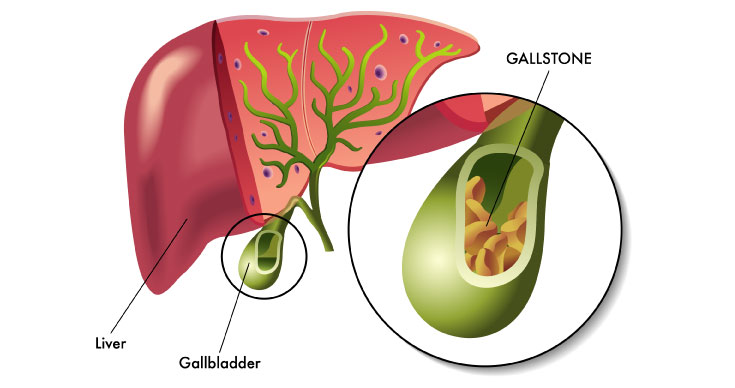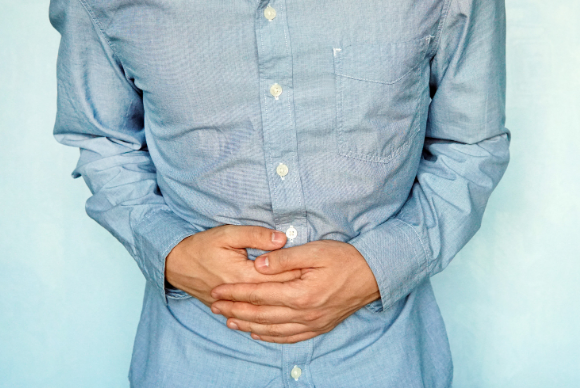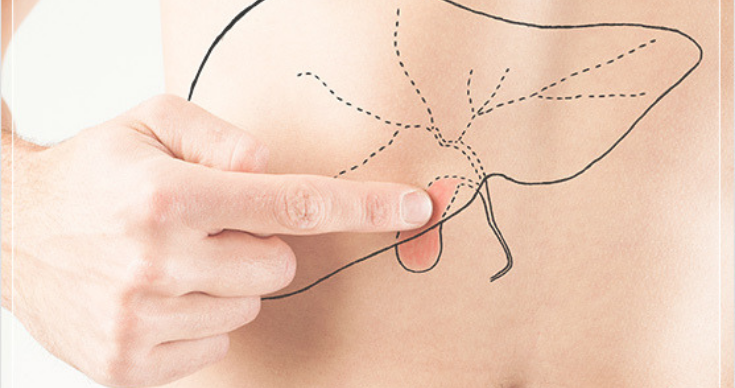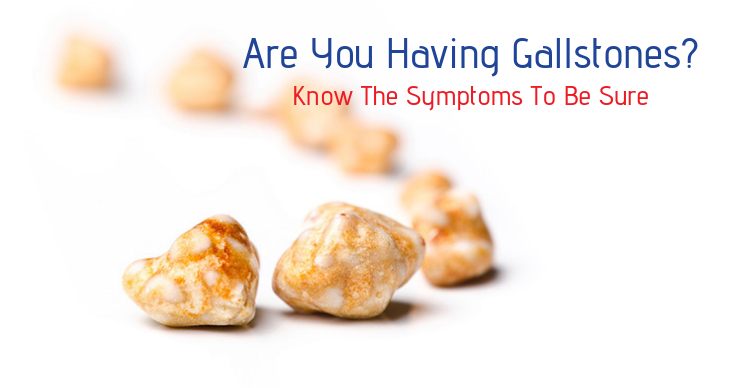A Brief Introduction To Gallstones And Gallstone Surgery
The gallbladder is a pear-shaped organ, located in the upper right side of the abdomen, right under the liver. It secretes bile juice, which helps in digestion. When this digestive enzyme solidifies, it forms hard, gallstones. Gallstones are of 2 types, cholesterol stones (when too much cholesterol is present in the bile) and pigment stones (when too much bilirubin is present in the bile). It is becoming very common these days and thus, a lot of hospitals are offering gallbladder stone surgery. Let’s understand some important aspects of the same, in details.
Symptoms Of Gallstones
Gallstones can arise in any number or size. Thus, the exact symptoms vary greatly from person to person. Many a time, gallstones might not project any symptoms at all (known as silent gallstones). However, the most common symptoms of gallstones are as follows and can persist anywhere between a few minutes to a few hours-
- Intense pain in the middle abdomen
- Pain in the right upper abdomen
- Pain in the right shoulder or between shoulder blades
- Nausea and vomiting
Though these symptoms can arise due to other conditions as well, if it persists for more than 2-3 weeks, it is best to get it evaluated to know the exact reason.
Causes Of Gallstones
Gallstones can happen to anyone. But few risk factors uplift the chances very much. These include-
- Having a family history of gallstones
- Having a personal history of gallstones
- Being overweight or obese
- Being pregnant
- Being 40 years or more
- Being female
- Being on a crash diet for weight loss
- Eating too spicy/oily food
- Eating a low-fiber diet
- Leading a sedentary lifestyle
- Having high cholesterol
- Having liver diseases
- Having diabetes
- Losing weight rapidly
- Taking medicines containing estrogen (like oral contraceptives)
It is important to evaluate oneself whether or not they are at risk of having gallstones. As a preventive measure, losing weight slowly, maintaining healthy body weight, and leading a healthy lifestyle is helpful to reduce the chances of the same.
What Is The Treatment For Gallstones?
If gallstones are left untreated, these can lead to complications such as inflammation of the gallbladder, blockage of common bile duct/ pancreatic bile duct and rarely gallbladder cancer. Thus, it is crucial to seek treatment for it, on time.
Gallstones can be treated by oral medication, shock wave lithotripsy and gallbladder stone surgery. Oral medical and litho stock therapy removes the stones by dislodging them, but often it takes many years to treat it completely if there are many gallstones. Moreover, once the therapy or the medication stops, the gallstones recur and for some people, the therapy or medicines simply don’t work.
Thus gallbladder surgery often remains the only option to treat gallstones permanently. In this surgery, the gallbladder is removed altogether so that gallstone can never recur in the future. These days, many doctors offer laparoscopic gallstone surgery, which removes the gallstones (along with the gallbladder, if needed) through few minute incisions and thus offers many advantages over open gallstone surgery.
The suitable method of treatment is determined by the doctor, depending upon your symptoms, complication, and compatibility. Come at ILS Hospitals for consultation and to get safe and effective gallbladder stone surgery from highly skilled GI surgeons.
4 Common Gastrointestinal Diseases That You Should Be Aware Of
We all come across articles with catchy titles like ‘best food for weight loss’, ‘worst food during pregnancy’, and so on, isn’t it! Indeed the food we eat determines many health factors for us. However, sometimes the passage of food, the digestive tract, itself gets inflicted with many diseases. In fact, the number of gastrointestinal conditions is on a rise since the past few decades. Let’s take a look at some of the most common ones of them.
Gastrointestinal conditions are the diseases that originate in any or more of the organs of the GI tract and its accessory organs. It includes the esophagus, stomach, gallbladder, liver, pancreas small and large intestine, colon and rectum. A good Gastroenterologist can offer extensive treatment of the same.
Some of the most common GI conditions are as follows.
1. GERD (Gastroesophageal reflux disease)
Acidity, reflux and heartburn are some most commonly experienced symptoms related to digestion. GERD is the severe form of such acid reflux. It is characteristic by regular acid reflux, often with a sour or bitter taste in the mouth. GERD might be a result of underlying hiatal hernia (for which hernia treatment must be sought immediately) and moreover, untreated GERD can severely harm the esophagus, so it is advised to address it on time.
2. Gallstones
Gallstones is yet another most common GI condition. Gallstones are solidified, crystalline substance that occurs inside the gallbladder. Its size may vary from small granular to big golf ball sized. It causes tremendous pain and can be eased with medicines. However, it is crucial to note that gallstones are mostly impossible to cure with medicine, and it can only be treated permanently with gallstone operation.
3. Gastroenteritis
This is a pathogen infection of the GI tract, which can include, bacteria, virus and parasites. It brings multiple symptoms at once, such as vomiting, diarrhea, headache and also fever. Usually, it is known as common stomach flu. The mild flu can be managed easily with adequate rest, plenty of water and minerals and mild over-the-counter drugs. But it might need some medical treatment, if the symptoms persist for long, or if it triggers again and again. However, these are easily spread and measures should be taken to avoid the possibility.
4. Peptic Ulcers
Unhealthy diet, lifestyle and excessive use of certain medicines can deteriorate the inner membrane of the stomach and expose it to the digestive acids. This results in ulcers and causes several digestive complications, if left unresolved. It often cannot resolve on its own, as the ulcers stay exposed to the enzymes persistently. Thus, its timely treatment is quite important and so is making certain changes in the diet and lifestyle.
There are several other GI conditions as well which need to be treated effectively. At ILS Hospitals, we offer extensive diagnosis treatment for a wide range of GI conditions.
Do You Need A Gallbladder Surgery To Cure Your Gallstones?
Your occasional stomach pain and digestion troubles not resolving even with home remedies and over-the-counter medicines? Are you certain it is not your gallstones? Knowing the symptoms of the gallstones help with an early detection and thereby a timely treatment. Few patients do not even realize the presence of the gallstones unless they block the path of bile, triggering ‘gallstone attack’ and cause unbearable, sharp pain. To avoid any such trauma and complications, it is advised to undergo timely, elective gallbladder surgery, also known as a cholecystectomy.
8 out of 10 patients with underlying gallstones need to undergo cholecystectomy either as an elective or emergency procedure. Those who might never need any surgical cure have what is called the ‘silent gallstones’ and can manage it and have a normal life with mild medication and lifestyle change. However, those who are experiencing any symptoms of the same, are always advised to avail the surgery.
The gallstone surgery can be done either by open or by laparoscopic surgery technique. The procedure is finalized by having multiple diagnostic screenings. These include blood tests, MRI (HIDA), ultrasound scan and endoscopy. After this thorough evaluation, the doctor finalizes the surgery mode. Here we present a brief description of them both. In both the procedures, often the gallbladder is removed altogether to mitigate the possibilities of its recurrence of the gallstones in the future.
Open surgery – The surgery is carried out through 5-8 inch incision made near the site. After the procedure, the incision is again stitched up. Now, it is suggested only for those who have some severe gallbladder complication or are in their 3rd-trimester pregnancy.
Laparoscopic surgery – It is also known as minimally invasive surgery or keyhole surgery and is carried out through 4-5 minute incisions and with the help of the modern instruments. These include laparoscope, camera, cold light source, and many other assisting instruments. A well-experienced surgeon operates effectively with the assistance of this advanced surgery and offers multiple benefits to the patients. These include much lesser operative and postoperative infection, bleeding, pain and recovery time.
ILS Hospitals, being a pioneer of laparoscopic surgery in eastern India, offers this advanced surgical technique for the people suffering from gallstones. However, open gallbladder surgery is also offered for patients with complications. In case, you or any of your loved ones is suffering the pain of the same, come down to ILS Hospitals to resolve it for once and all.
Health Tips To Stay Healthy This Durga Puja Festive Season
Durga Puja – the festival that brings us closer to our family and friends. Amidst these overwhelming seasonal spirit, often we let our guards down and fall in tarps to several health complications. ILS Hospitals lists out some of the health issues related to festive-season and offers some tips and precautions to stay healthy.
1. As we are going through a confused climate, it is uncertain to say whether or not it will be raining in between Puja season. So, take every precaution you should during this time. Also, while pandal hopping, don’t forget to use the mosquito repellent.
2. Despite the prevailing monsoon, the intense sunlight, during the day with clear sky, can cause severe dehydration and sunburn if proper measures are not taken. So don’t forget to carry your umbrella during your day voyages and apply your sunscreen cream as well.
3. You should also be very particular about the food and drinks you feast upon outdoors, with your friends and family. Practice extra caution while going for the Fast food items like Noodles, Rolls and Pani Puri from street vendors.
4. Carrying and consuming bottled water is highly advised. Unpackaged water can be contaminated and thereby can lead to Diarrhoea, Typhoid, Food Poisoning, and Hepatitis.
5. Being in crowded places can cause spreading of several contagious illnesses such as cold, cough, flu and viral infections. Stay on guard while being with crowds in pandals and never-ending queue leading towards the same.
6. Pandal hopping for hours, regardless, of day or night is tiresome. Adequate rest is extremely necessary for you. So, even if you are extremely busy having fun, take out atleast 6 hours each day for sleep. Staying awake all night long is particularly not advised for elderly people and children.
7. Over excitement and enjoyment without caution can also lead towards mild to major injury. So keep a leash on the same and make health and safety your first priority.
8. If you already have any medical discomfort, you should be extra careful. For eg., if you have diabetes, you should keep taking your medicine without a miss and in case you have asthma and respiratory discomfort, it is best to plan your visit to avoid crowds as it might trigger an attack.
So, follow these simple precautionary tips and reap the best of this festive season. Also, take note that ILS Hospitals is all set and functional during the entire puja season. So come down at ILS Hospitals to address any medical emergency or discomfort that you encounter.
Are You Having Gallstones? Know the Symptoms to be Sure
Do you experience episodes of abdominal pain from time to time? Are you also experiencing persistent digestive issues that won’t resolve with diet changes? Chances are high that you are suffering from gallstones. In case you are ruling out the possibility of the same, remember, most of the patients later going for gallbladder stone surgery admitted to experience no symptoms for a long period of time. Let’s discuss what gallstones are along with some of the warning signs of gallstones.
The gallbladder is a small organ located beneath the liver and it secretes digestive enzymes that facilitate digestion. It is called the bile. When it concentrates into hardened mass, it becomes what we call the gallstones. It can either occur as one large stone or several small ones. The size of the same ranges from sand granule to as big as a golf ball.
There are some ‘silent gallstones’ that have no symptoms associated with it and often does not require any treatment either. Check out for the following warnings of gallstones that indicates you might need to consider a gallbladder stone surgery later on.
-
A sharp pain for a brief period, which often is called an ‘attack’, is the most prominent symptoms of an underlying condition of gallstone.
-
These episodes can be separated by some period of times. It can range anywhere between days, weeks, months or even years.
-
Though the pain might onset unannounced at any time, it has often been found to onset after 30-40 minutes after consuming a highly processed junk food.
-
This pain usually starts very mild but slowly turns severe. It stays constant for some time, which can last anywhere between 1 to 6 hours.
-
The pain usually originates in the abdomen, which may later move to the right shoulder or back. It usually sets during late night and the sharp pain may even wake a person right away.
-
The digestion associated symptoms such as nausea, vomiting, bloating, indigestion, etc. are often seen in patients with gallstones.
-
Symptoms like jaundice, fever and persistent severe pain need to be addressed immediately as it might indicate a blocked duct due to the accumulation of gallstones.
Unfortunately, gallstones are often recurring in nature. Those with a history of the same is highly susceptible to have it again in the future. Thus, it is always recommended to seek consultation before and after a gallbladder stone surgery to take measures against it.















